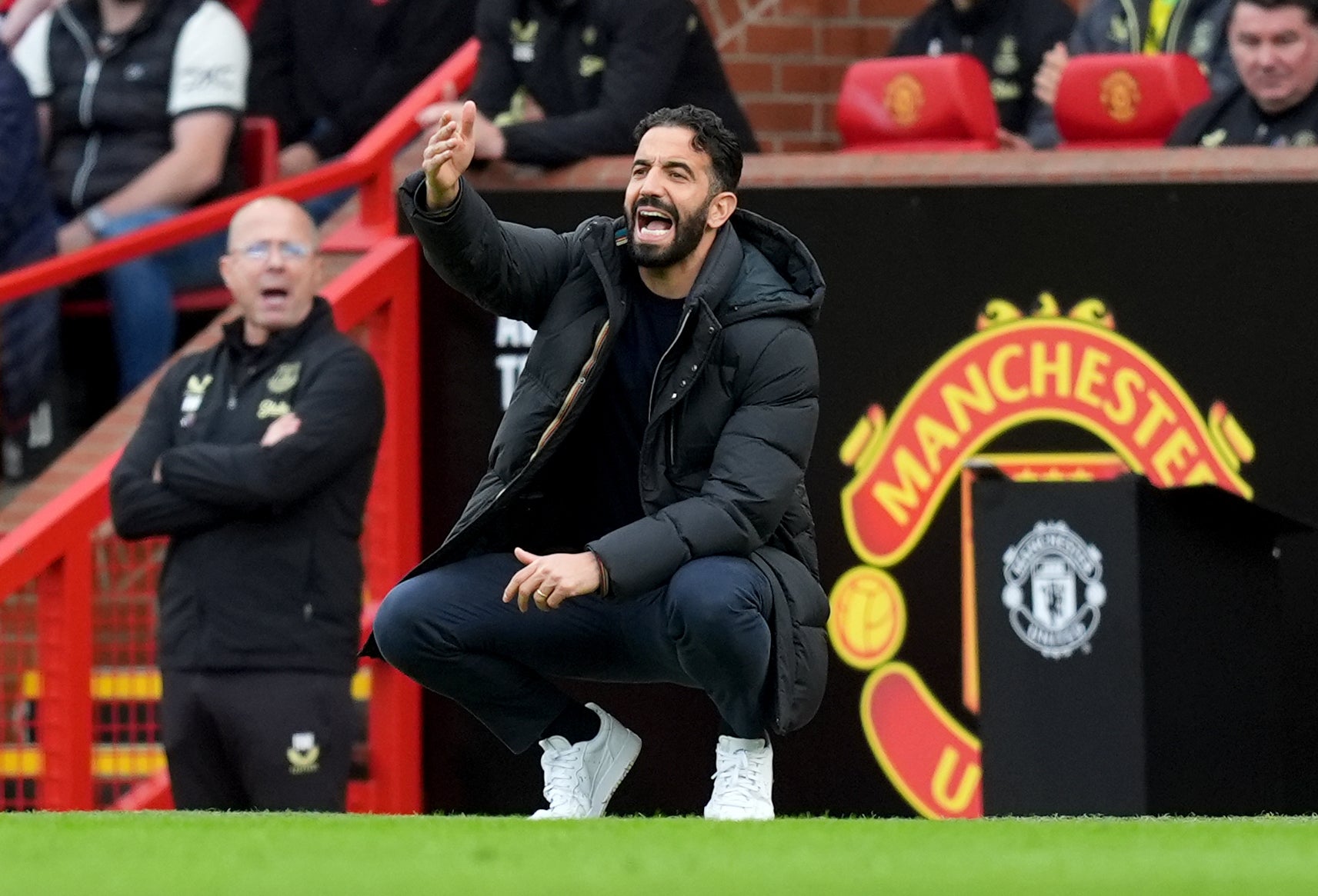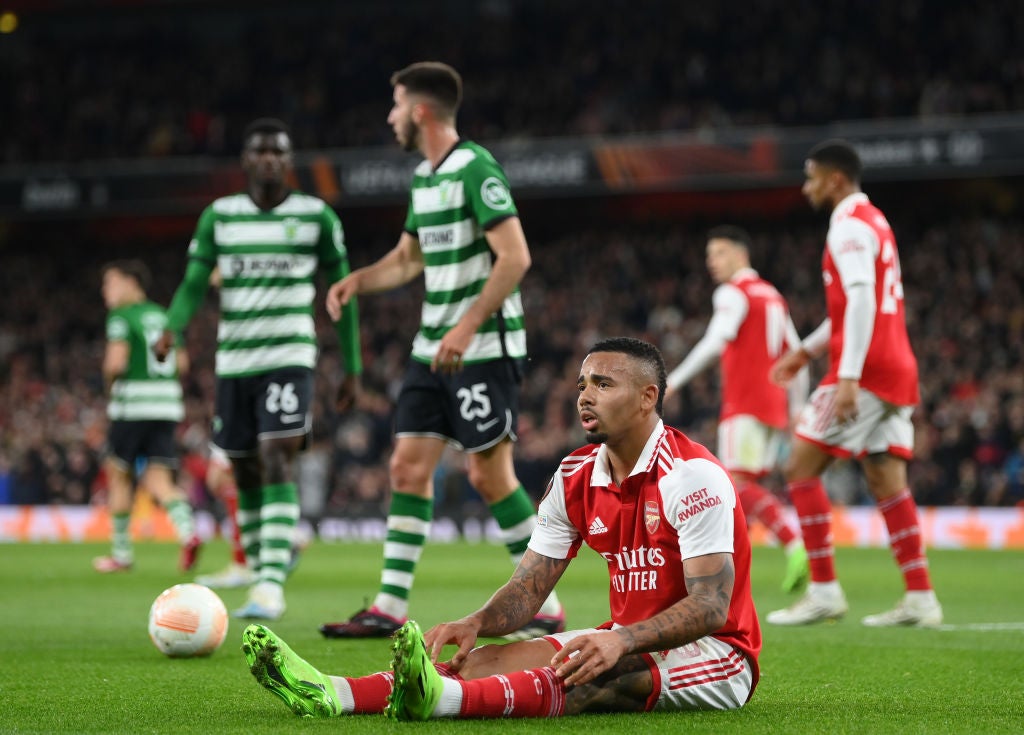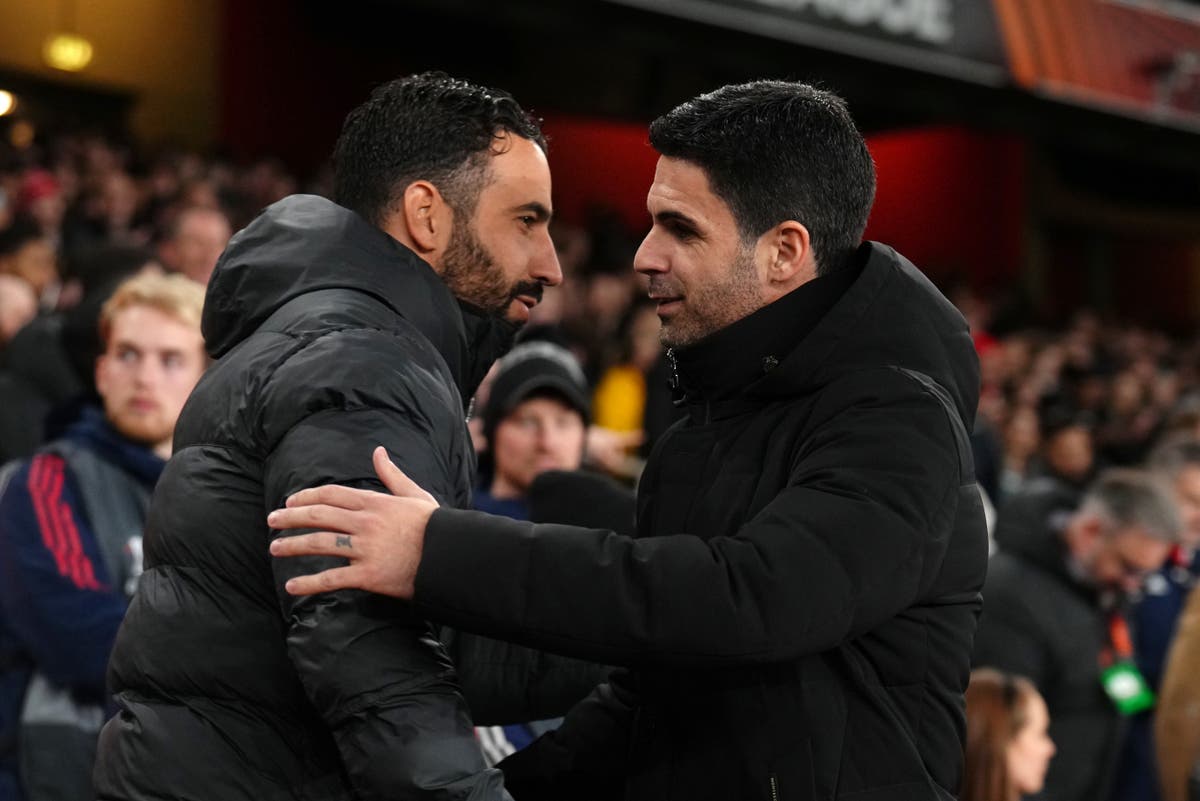The storm is coming. Manchester United will be found out. They were Ruben Amorim’s words, yet he was neither scaremongering nor indulging in needless negativity. The 39-year-old has cut a smiling but demanding figure so far; by his own admission, he was a little surprised by the sheer size of United and yet, while he faces a huge task to restore them to past glories, he is aware patience will not be infinite.
He faces the toughest test of his brief reign to date with Wednesday’s visit to Arsenal. He admires Mikel Arteta, seeing a manager further on his journey of reviving a fallen giant as something of a role model and yet stresses that United are a different case. They always are.
Back-to-back wins, the first against Bodo/Glimt and then, in United’s biggest Premier League victory since 2021, 4-0 against Everton, have suggested swift progress is being made under the newcomer. Triumph at Arsenal and there is a danger of inflating expectations too quickly. But Amorim counselled: “I would like to say different things, but I have to say it again: the storm will come. I don’t know if you use that expression, but we are going to have difficult moments and we will be found out in some games. And I know that because I’m knowing my players and I know football and I follow football.”
Part of his challenge is to encourage United to believe again while retaining a sense of realism. It is the duality of club that can describe itself as the biggest in the world when Amorim inherited a team in 13th place. “I know it’s really hard to be a Manchester United coach and say these things in press conferences,” he reflected. “We want to win all the time, no matter what, we are going to try to win, but we know that we are in a different point, if you compared to Arsenal.”
The fifth anniversary of Arteta’s appointment comes later this month. The Spaniard has a lone trophy, fewer than Erik ten Hag won for United, but has mounted two genuine title challenges: United, in contrast, have none since Sir Alex Ferguson retired.
“I think he’s done an amazing job,” Amorim said. “Sometimes coaches are just judged about the titles, but what he has been doing in Arsenal, I think is amazing. It transformed the team. He bought some youngsters that now are the big talents in this country. I hope to have the same mindset that he had in the difficult moments. I think it’s a very good characteristic in in Mikel, so I think he did a great job.”


As Amorim indicated, there is much to emulate: Arteta has forged a team with a combination of coaching pedigree, faith in emerging players and his own vision. If Ten Hag may have had the same intention, the Arsenal manager has sustained his impact for longer, had a better record in recruitment and fashioned a side who were genuine rivals to Pep Guardiola’s Manchester City.
And yet it has not always been easy. Arteta was a mid-season appointment, as Amorim is now, and won the FA Cup in his first few months in charge. At Christmas of the following season, his side were marooned in 15th after going seven games without a win. Arsenal supported him in a slump.
“That is also always important for a coach to have that confidence, but we have to acknowledge that Manchester United is a little bit different,” noted Amorim. “All the attention that you guys put in here, all the time. I know that sometimes is not possible to have all that time. So we will try to do things a little bit more fast knowing that here is a massive attention and massive judgement every day.”
Everything is magnified at United in a way it might not even be at Arsenal. One of Arteta’s setbacks came courtesy of Amorim, his Sporting side knocking Arsenal out of the Europa League in 2023. Arsenal’s evolution means he cannot simply deploy the same blueprint.

“Arsenal this year, they play a little bit different,” he explained. “Two years ago when we faced them with Sporting, you knew how to press because you can understand better the structure. Now it’s more fluid with [Riccardo] Calafiori and [Jurrien] Timber in different sides. One coming inside, the other going outside, also [Martin] Odegaard changed the team.”
If Amorim was employed to bring change, with his trademark 3-4-3 formation the start, United has provided a culture shock to him. “I can say I was a little bit surprised,” he said. “Because you don’t know how life is at this kind of club. So it’s always a surprise. I think I can manage that, but you have to do so much more than coach the team. So you improve in yourself as a coach, you have to manage the time in a different way. You have less time to prepare the games.”
And, as a manager with a two-and-a-half year contract, less time to make an Arteta-esque impact.

